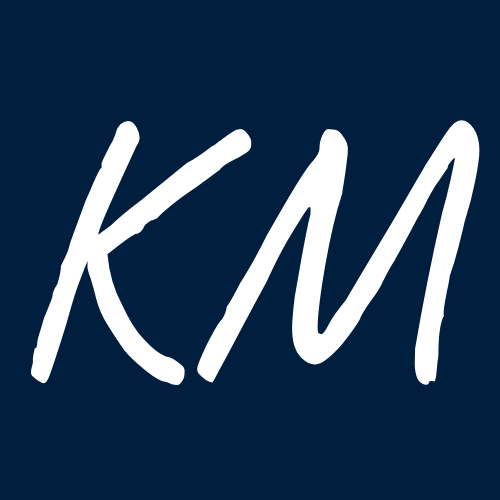TCL #46: The Battle for Critical Resources
The logic of globalisation assumed that markets would efficiently allocate resources wherever they were cheapest. That era is ending. From lithium deposits in Texas to rare-earth sites in Minnesota, from quantum processors to AI-powered drug discovery, the new currency of industrial policy is not cost but control. The companies and countries that secure tomorrow's critical inputs fastest will write the rules of the next industrial age.
Rare Earths
Cleveland-Cliffs, the largest flat-rolled steel producer in North America, has reported an increase in steel demand during the third quarter and is exploring the potential for producing rare-earth minerals. The company's CEO credited Trump's tariffs (50% on steel) with positively impacting the company's performance and the demand for US-produced steel.
Geological surveys at two of the company's legacy sites in Michigan and Minnesota have indicated the presence of rare-earth mineralization. While the company has announced these plans and seen its stock price react positively, the exploration is still in its early stages.
Battery
Barrell Lithium has secured 44,000 net acres in the Smackover Lithium Trend, primarily in East Texas. The Smackover Formation is a geological area spanning parts of Arkansas, Louisiana, Texas, Alabama, Mississippi, and Florida, where significant lithium-rich brines have been discovered. This reserve is considered significant enough to potentially meet nine times the projected global demand for lithium for car batteries by 2030. The portfolio company's expansion was made possible by a Series A funding round, which launched in April 2025.
Quantum computing
Google claimed a significant advancement in quantum computing with a new algorithm demonstrating "quantum advantage". The quantum advantage signifies a point where quantum systems outperform traditional computers for specific calculations. The algorithm, detailed in a Nature article, simulates the quantum mechanical behavior of natural systems, like molecular interactions.
Google states its quantum chip processed results 13,000 times faster than a classical supercomputer using this algorithm. A key aspect of this demonstration is the verifiability of the results, meaning they can be replicated on a second machine. Previous claims of quantum advantage have faced skepticism, including from Google itself in 2019 with its quantum supremacy claim. The scientific community awaits scrutiny of Google's latest claim despite it undergone peer review.
Artificial Intelligence
- Chemify, a Glasgow-based company focused on digitizing chemistry to create solutions for drug discovery, chemical synthesis, and materials discovery, has raised more than $50 million in a Series B funding round. Chemify's technology, called Chemputation, fuses chemistry, robotics, computation, and AI to digitize molecule creation. The company launched its first automated facility for molecular design and synthesis, called Chemifarm, earlier this year. The new funding will be used to drive the global expansion of its digital chemistry and discovery platform, with plans to expand its presence into Silicon Valley.
- Anthropic has launched Claude for Life Sciences, a new offering designed to assist researchers in advancing scientific discovery within the life sciences sector. This new tool is built upon Anthropic's existing AI models and supports integration with other scientific platforms, such as Benchling. Companies such as Sanofi and Novo Nordisk have reportedly utilised Anthropic's models for various tasks, including reducing clinical study documentation time from over 10 weeks to just 10 minutes. The company is also offering support from subject matter experts and partnering with consulting firms such as Deloitte and Accenture to aid AI adoption in life sciences.
Oil & Gas
A French court has ruled that TotalEnergies engaged in misleading commercial practices by claiming it planned to reach carbon neutrality by 2050 and be a major player in the energy transition. TotalEnergies will have to pay €8,000 each to Greenpeace, Notre Affaire à Tous, and Friends of the Earth France, three environmental non-governmental organizations that sued the company, and publish the court's decision on its website for 180 days. The court's decision is considered a major legal precedent against greenwashing by oil giants.
Aviation Fuel
Neste and United Airlines have expanded their partnership to supply sustainable aviation fuel (SAF) to three major US airports: George Bush Intercontinental Airport (IAH) in Houston, Newark Liberty International Airport (EWR) in New Jersey, and Dulles International Airport (IAD) in Washington D.C. This expansion makes United Airlines the first commercial airline to purchase and use SAF for flights departing from these three airports. Neste has been supplying SAF to United at Chicago O'Hare International Airport since August 2024 and also provided it for United's fleet at San Francisco International Airport.
Carbon Capture
BASF and ANDRITZ Group have signed a license agreement for the use of BASF's proprietary gas treatment technology, OASE blue. This agreement is for a carbon capture project planned in Aarhus, Denmark. The project aims to capture approximately 435,000 tons of CO2 annually from the flue gases of a waste-to-energy plant.
Climate Monitoring
ABB has been awarded a contract by the Canadian Space Agency (CSA) to develop the Thin Ice Clouds and Far InfraRed Emissions (TICFIRE) instrument. This instrument is a key component of the High-altitude Aerosols, Water Vapor, and Clouds (HAWC) satellite mission, led by Canada. The HAWC mission aims to improve climate science, environmental monitoring, and forecasting of severe weather events. The instrument developed by ABB will help scientists understand aerosol-cloud interactions, a major source of uncertainty in climate modeling. The instrument will measure how water vapor and ice clouds affect incoming solar energy and Earth's outgoing energy.
Oncology
AstraZeneca, Daiichi Sankyo, and Gilead Sciences have all presented promising trial results at the European Society for Medical Oncology (ESMO) Congress 2025 concerning the treatment of triple-negative breast cancer (TNBC), which accounts for 10-20% of breast cancer diagnoses. Datroway, a drug by AstraZeneca and Daiichi Sankyo, improve overall survival by 23% and progression-free survival by 43% compared to chemotherapy. Enhertu, another drug from AstraZeneca and Daiichi Sankyo, showed a 92% three-year disease-free survival rate in earlier-stage patients, compared to 84% with standard drugs. Gilead's Trodelvy demonstrated a 38% reduction in the risk of cancer progression or death and extended survival to 9.7 months from 6.9 months compared to chemotherapy.

